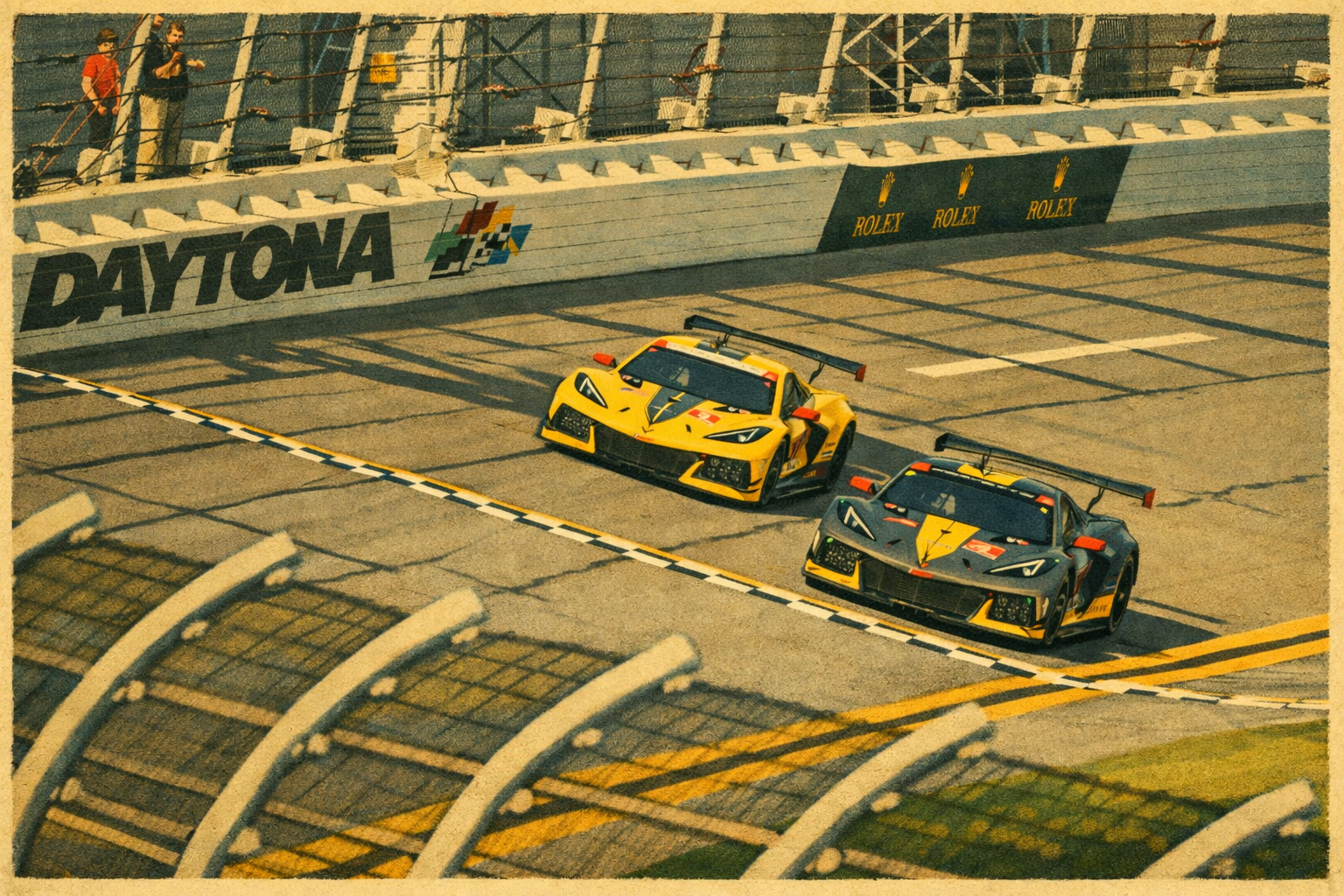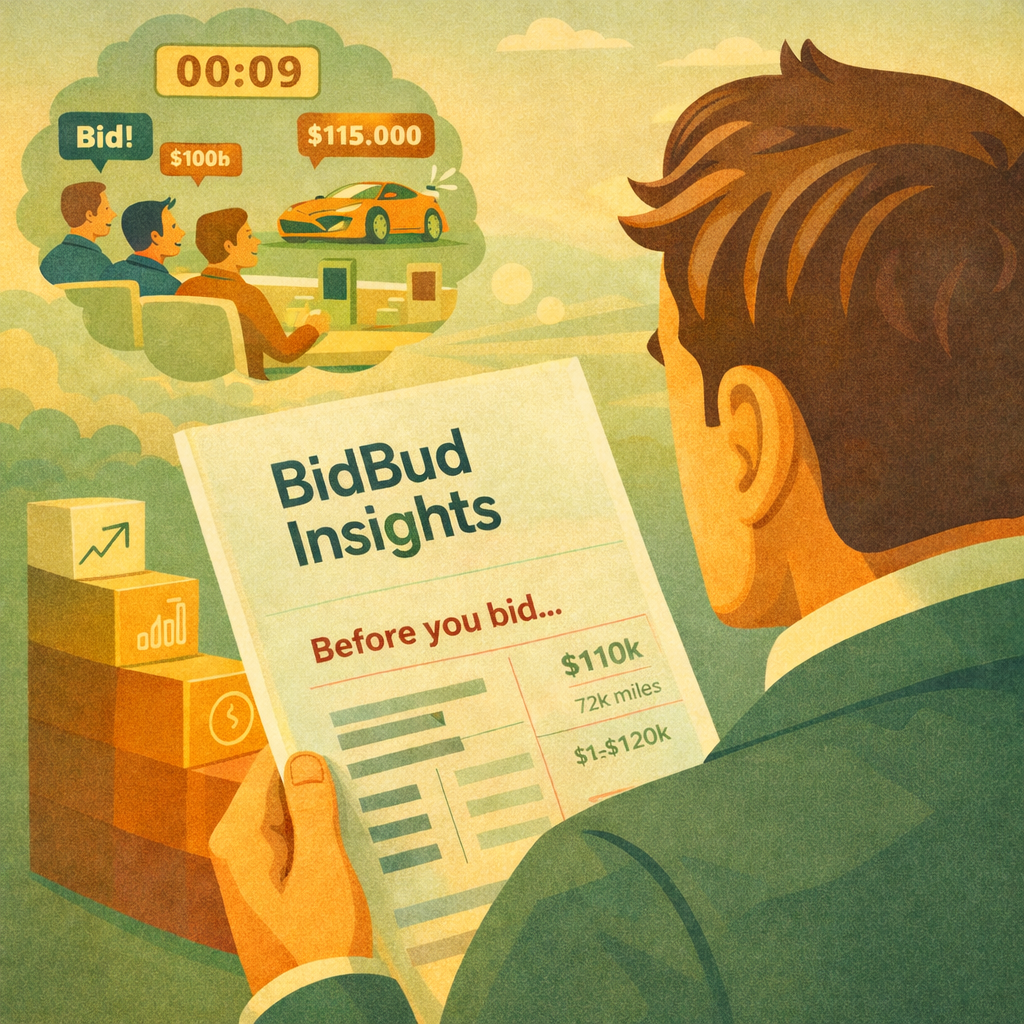Building BidBud: The Vision Behind AI for Vehicle Auctions

Building BidBud: The Vision Behind AI for Vehicle Auctions
For decades, the thrill of the car auction has been part adrenaline, part heartbreak. Up until the mid-1990’s, car auctions were in-person events. You would find a magazine with the perfect car, maybe a Guards Red 911 Turbo, a perfectly kept E39 M5, or that low-mile Defender 90 you’ve been eyeing for months, and you would drive to the auction and bid. Fast forward a few tense minutes, and someone else wins by $250. Now, the auctions are much more intense. You’re sitting behind a screen, waiting to see if someone behind the screen just outbid you. That moment, the emotional rush and uncertainty of whether the car is yours, is what makes online vehicle auctions so addictive. It’s also what makes them deeply inefficient.
The Problem: Emotion Over Information
In theory, online auctions should be the most efficient way to determine a car’s true market value. In reality, they’ve become arenas where emotion, timing, and even screen refresh rates often outweigh data and reason. Car enthusiasts are passionate people. But passion can cloud judgment. Some argue that judgment doesn’t matter, while others make good buys and tons of money because of it. Many bidders place bids without knowing where the market for their car truly sits, how other bidders behave, or when to strategically place a bid. Some bid too early and drive prices up unnecessarily. Others wait too long, lose the car, and overcompensate in the next auction. That’s where BidBud comes in.
The Idea: Leveling the Playing Field
BidBud was built on a simple idea: if you had all the relevant information to an auction: pricing history, market trends, bidder behavior, and timing strategy then you could make better, more confident decisions. Think of it like having a digital co-pilot that doesn’t get nervous or emotional. BidBud’s AI observes, predicts, and advises you based on hundreds of thousands of past auctions and real-time market conditions. It doesn’t just tell you what a car sold for last month — it tells you what it’s likely to sell for today, how many bidders are actively competing, and what bidding patterns might emerge as the clock winds down. It’s not about replacing instinct. It’s about sharpening it with data.
The Auction Market Is Growing and Changing
Over the last decade, the enthusiast car market has moved online in a way few predicted. Platforms like Bring a Trailer, Cars & Bids, PcarMarket, and Collecting Cars have transformed garages and screens into virtual showrooms. Enthusiasts who once watched Barrett-Jackson on TV now trade six-figure classics from their phones. But as the audience has grown, so has the complexity.
- Price volatility has increased, especially in collector segments like air-cooled Porsches or Japanese classics.
- Transparency has improved, but not for bidders who don’t have time to research every car.
- Competition has surged: more bidders, more comments from the peanut gallery, and more last-minute surges that distort what a “fair” price looks like.
The result? A market that feels more alive than ever but that is harder to navigate.
Where BidBud Fits In
BidBud, using Artificial intelligence, thrives in environments with massive, messy data, the kind that overwhelms human intuition. That’s why it’s being used in finance, sports analytics, and even real estate. Car auctions are no different.
BidBud’s AI analyzes:
- Historical sale data: Make, model, mileage, condition, options, and hammer price.
- Market momentum: How similar vehicles are trending week-to-week.
- Bidding Behavior: When bidders enter, how quickly they raise, and who tends to overbid near closing.
- Psychological Patterns Subtle patterns like how showing last-second bids increases bid responses and sale prices.
The goal isn’t to predict the future perfectly…it’s to empower bidders with context. Instead of guessing, users see real insights, ultimately changing the landscape of online auctions altogether.



.png)

